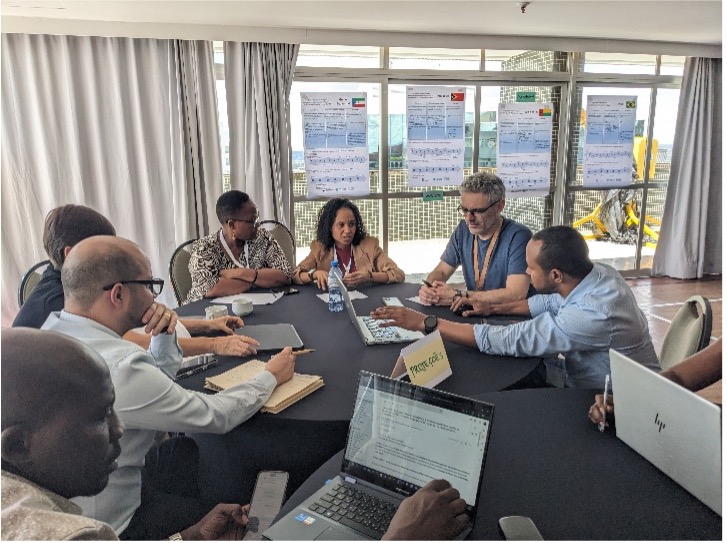Select language
Trends
Global NEWS
| Title |
[UN] Building Capacity of Lusophone Youth in the Climate Transparency Process |
|---|---|
|
As host of this year’s COP30, Brasil has been a lead advocate for climate transparency and the transition of countries ad-hoc reporting requirements to efficient, evidence-based and institutionalised processes for reporting their climate change progress and commitments. The path to COP30 is thus a unique opportunity to introduce Lusophone youth to climate governance. COP30 President André Corrêa do Lago has stated that “as countries prepare and communicate their next NDCs and Biennial Transparency Reports (BTRs), we need to build the capacity of developing country Parties to transition from ad hoc reporting approaches to government-led, systematic, and institutionalised processes for preparing and submitting national reports under the ETF.” Throughout 2025, all Lusophone countries are preparing their NDC update (except Brazil, which presented it at COP29 in 2024) and most of them will be preparing their first Biennial Transparency Report (BTR). COP29 placed a special emphasis on climate transparency with a significant decision on the New Quantified Collective Target (NCQG) on climate finance, where Parties agreed to “recognise the importance of transparency in measuring progress in improving access to climate finance and the impacts, outcomes and consequences of climate finance flows”. To support Lusophone youth in understanding, monitoring and influencing climate transparency processes under the Paris Agreement, the Capacity Building Initiative for Transparency – Global Support Programme conducted a unique youth component during the yearly seminar of its Lusophone Cluster in Brasilia, Brasil. With the support of the Belgian and Portuguese governments one youth representative from each Lusophone country attended the seminar, that took place between April 8th and 11th, 2025, which is usually limited to senior representatives of each country’s administrations. In addition to forming a Lusophone Youth Network for Climate Transparency, the seminar aimed to strengthen participants’ technical capacities in climate transparency, include them in national working groups on NDCs and BTRs, and enhance their understanding about the Enhanced Transparency Framework, greenhouse gas inventories; tracking NDC progress and of support needs and received. In their presentations and discussions the youth representatives focused on the integration of youth representatives in climate reporting processes, highlighting the importance of access to knowledge and information; inclusive education and technical training; intergenerational responsibility; and climate justice and inclusion. The Lusophone youth network will continue activities in the lead up to, and after COP30, including mapping of youth initiatives in Portuguese-speaking countries that work with NDCs and climate transparency, preparing of climate monitoring bulletins; awareness campaigns on the importance of transparency and climate action in Lusophone countries; and advocacy with national governments for including of youth in the review, implementation and monitoring processes of NDCs.
Lusophone youth at work in Brasilia.
The youth representatives have since, and following up to the commitment made at the seminar, established the Lusophone Youth Cluster on Climate Transparency (Jovens do Núcleo Lusófono pela Transparência Climática), which now includes more than 400 members. The Lusophone Youth Cluster’s first major activity is a series of webinars (August-September 2025), that cover issues ranging from the multilateral climate change regime, to the enhanced transparency framework under the Paris Agreement and preparation of their participation at COP30 in Belém, Brazil later in the year. While most effort is being assured by the members of the Lusophone Youth Cluster themselves, several other organisations are providing ad hoc support and advice, in particular the CBIT-GSP, UNDP and PATPA. The event was supported by the participation of the governments of Angola, Brazil, Cape Verde, Guinea-Bissau, Equatorial Guinea, Mozambique, Portugal, São Tomé and Príncipe and Timor-Leste. The event was organised and supported by the United Nations Development Programme, the Partnership on Transparency in the Paris Agreement, United Nations Environment Programme, UNICEF’s Climate Action Now Program, Global Environment Facility, German Development Corporation, United Nations Climate Change (UNFCCC), WACA, Executive Secretariat of the Community of Portuguese Language Countries. |
|
| View Original URL | View Original |
| Category | etc |
| File |
|
| Sources | UNEP CCC |






